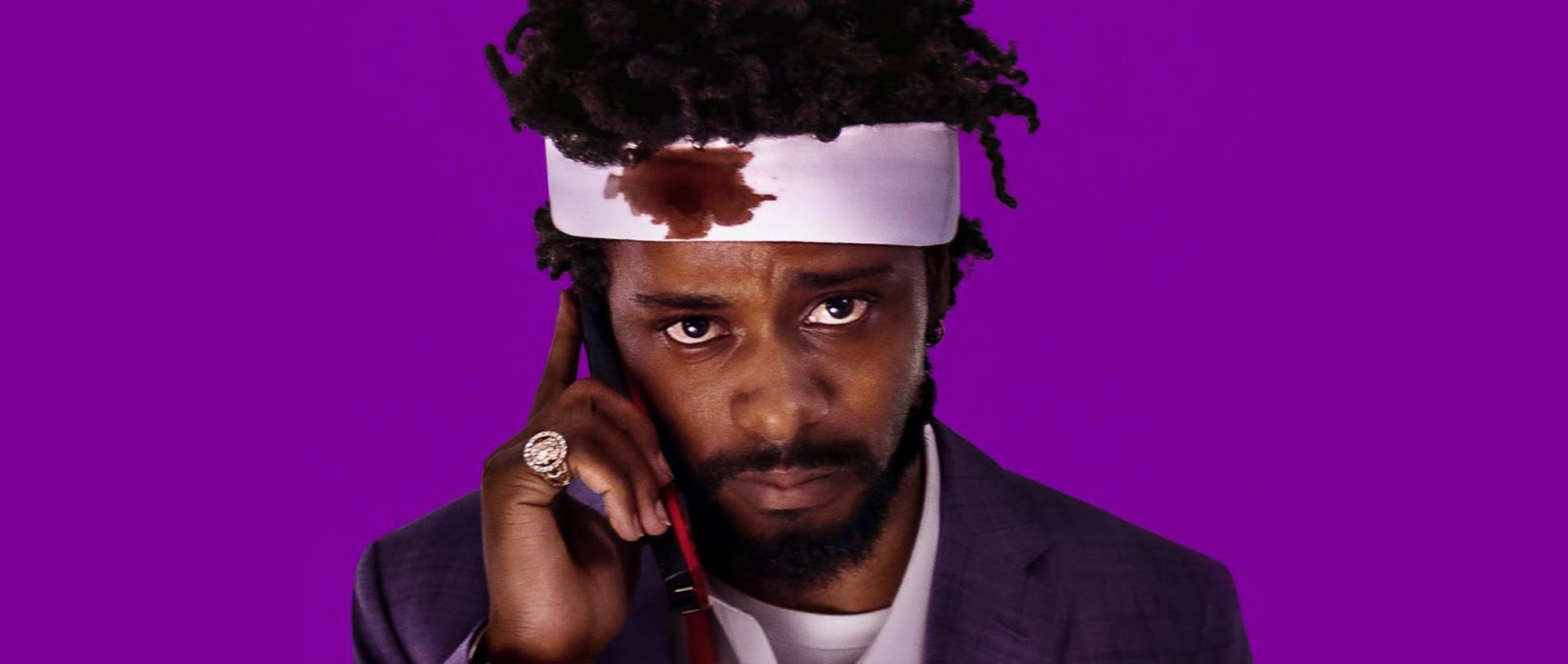
Sorry to Bother You: All the reasons Boots Riley can bother us anytime
We enjoyed Boots Riley’s oddball sci-fi movie Sorry to Bother You in a blissfully air-conditioned theater during last summer’s heat wave. If you didn’t, you need to see it immediately. The movie is one of the most original, ambitious, and visionary films of the past decade – plus you deserve to get out of the sun and cool down while having your mind blown open by a satirical story with a fresh, strange voice.
If you know anything about Riley, you’ll likely be able to identify the musician and filmmaker’s singular perspective within the film. But if you don’t know much about him, now’s the time to get educated on the man and why he’s someone you might want to know more about. Here are all the reasons Riley can continue to bother us with his work whenever the hell he wants to.
He’s been politically engaged since his teens
Riley is renowned for writing tenaciously political music as the frontman of hip-hop group The Coup and has tackled a number sociopolitical issues in his music including crony capitalism, police brutality, and the mechanisms of the criminal justice system. However, Riley is also a self-identified communist who joined the Progressive Labor Party at 15 and was active in the Occupy Oakland and Occupy Wall Street movements earlier this decade.
While studying film at San Francisco State, Riley also joined anti-racist protests, telling The New York Times: “White supremacists said they were going to take back the Bay Area. They had the ‘Aryan Woodstock’ in Napa, and they’d have rallies in Union Square, with cops surrounding these Nazis.” Riley liked to throw soda cans over the cops and into the crowd of Nazis – a technique paid loving homage to in Sorry to Bother You.

His father is a political activist (who helped hook him up with Danny Glover)
As Mother Jones stated about the musician and filmmaker, “Riley came to political activism on his own, but it’s fair to say he was born into it,” thanks to his politically active father – Oakland attorney Walter Riley.
Walter was raised in segregated Durham, North Carolina and took part in voter registration drives and sit-ins before becoming a field secretary for the Congress of Racial Equality and a leader of the Progressive Labor Party. In the interview with Mother Jones, Riley even recounts a time his father came home with bandaged ribs after a brawl with Ku Klux Klan members.

Danny Glover (The Royal Tenenbaums) went to San Francisco State with Walter and the two were part of the San Francisco Strike (creating the first ethnic studies program in the United States). According to Riley, Glover was “probably the last one to jump on board” with Sorry to Bother You despite (and probably because of) him being a family friend.
Per an interview with Film Inquiry: “You know, your friend’s son has a script that he wants you to be part of, so that’s not the thing you probably wanna do if you’re Danny Glover. But once it seemed like it was real and people were getting on board, then he took it a little bit more seriously and came on board.”
He originally tried to inspire attention for the film by releasing an album in 2012
Also titled Sorry to Bother You, the album was devised to drum up some excitement for the film but sadly, his plan didn’t pan out. In order to make money and promote the album, Riley ended up touring Sorry to Bother You for two years, which initially seemed to only further dampen the process of getting the film made. However, he persevered – and how!

He isn’t afraid to hustle to get results
On his mission to get Sorry to Bother You made, Riley wasn’t shy about bothering high-profile industry types to make it happen. Riley reportedly snuck into a private dinner at the Napa Valley Film Festival to get his script to Viggo Mortensen (Captain Fantastic) with whom he apparently shared an acquaintance (Mortensen passed on participating), and he also pitched the film to Guillermo del Toro (The Shape of Water) at a San Francisco Film Society luncheon.
Riley told Film Inquiry that del Toro thought his idea was “amazing” and seemed happy to help:
“By the end of the talk, he was like, ‘So, wait, you haven’t done a movie yet?’ And I was like, ‘Nope,’ and he was like, ‘Oh. no. You need to go do something. You need to figure this out because you need time on the floor.’ But then I was like, ‘I need a mentor.’ He’s like, ‘I don’t have time for it,’ but then he answered every single email I ever sent him asking questions and answered sent questions at length and then helped look for effects houses and things like that.”

Somehow this hustling approach also involved Colin Firth rapping at Riley
Though Firth also reportedly suggested he couldn’t do the film either, the British actor once apparently rapped some Coup lyrics at Riley, which prompted him to write to an email address belonging to Firth’s wife. Just let that image sit with you for a while: Colin Firth rapping at Riley.

Parts of Riley’s gonzo dystopia have become real
Parts of his original 2012 script have become startlingly real in 2018. Omari Hardwick’s obscurely titled character Mr. _______ (literally just “Mr” plus seven underscores) says the line, “Worry Free is resurrecting America,” but it used to be, “Worry Free is making America great again,” offering some troubling foreshadowing for the 2016 MAGA campaign of the current POTUS.
Speaking to Vox, Riley stated: “I hope that nobody working for Trump read it and thought, ‘That’s actually good.’” Meanwhile, Riley explained that the homeless camps seen all over Oakland in Sorry to Bother You also weren’t a thing when he wrote the movie.
“There were homeless people, but they usually were able to find places out of sight. But with all the development, they have been kicked out, and so all that we showed was the actual homeless camps. Those didn’t exist when I wrote it, and now they do.”

He wanted to break the rules of conventional storytelling
Sorry to Bother You is one of the most unique movies of recent times, with a purposefully disruptive storytelling style. “There are things that are done in this film that you’re not quote-unquote supposed to do,” Riley recently told Deadline. “It was out of wanting to have people engage with the film in a different way and to not be able to guess exactly what’s going to happen, just like in life, so to keep people on their toes.”
In this regard, Riley’s film brings to mind the works of other disruptive cinematic storytellers like David Lynch (Blue Velvet), Michel Gondry (Eternal Sunshine of the Spotless Mind), and Jim Jarmusch (Broken Flowers), who have delivered similar sentiments about film narratives and how they relate to the unpredictable chaos of real life.
He shot the film in just 28 days
That is insane. Riley completed a cut of the movie just in time for Sundance.







